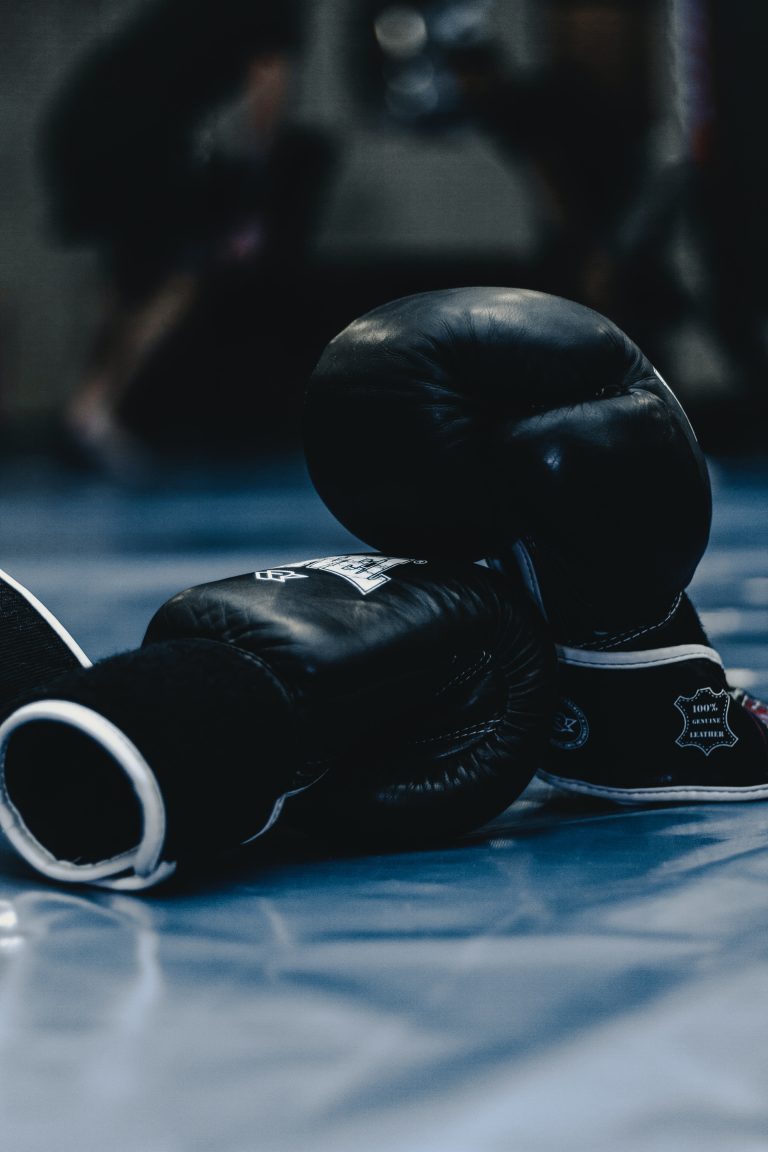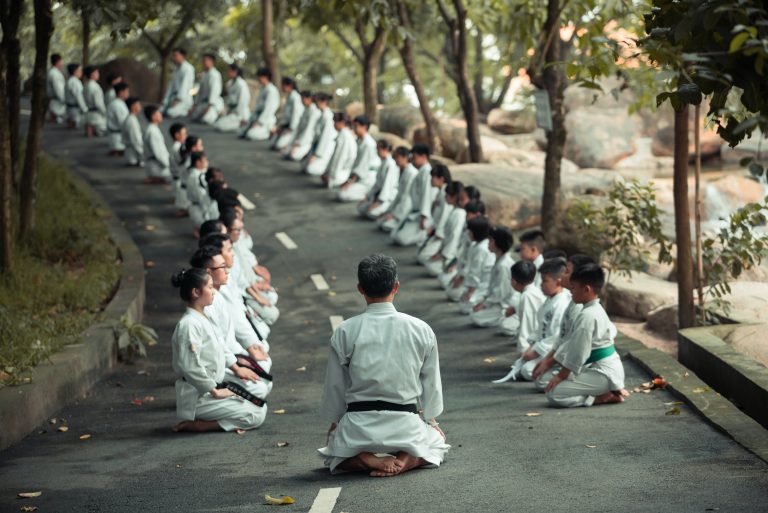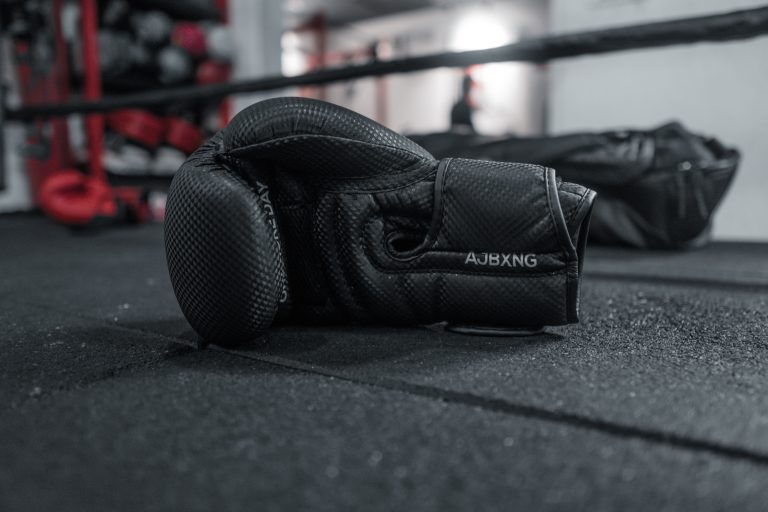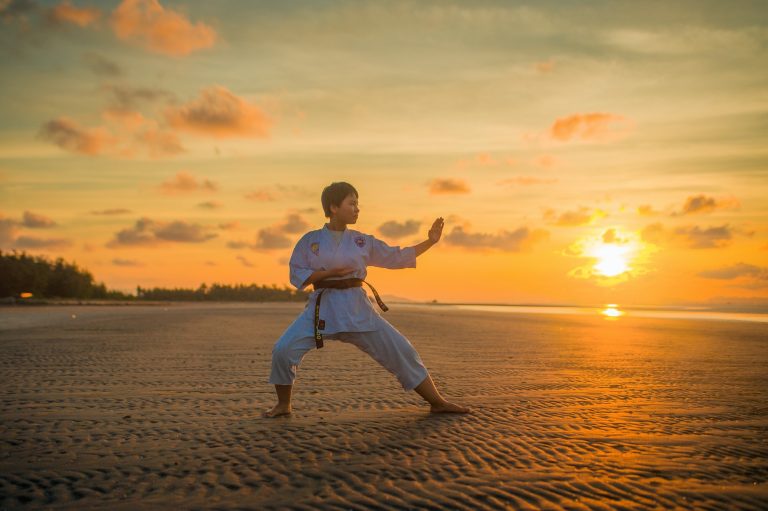What is Karate and How Can it Help Improve Fitness and Enhance Performance?
Karate is a centuries-old martial art form that offers a wide range of health and fitness benefits. In its purest form, karate is a means of self-defense, but it has also been used to develop physical fitness, mental discipline, and strategy. Despite its longevity, karate remains popular in the modern era, earning widespread recognition for its ability to improve physical and mental fitness. In this article, we’ll take a closer look at karate, discussing the techniques and philosophies behind it as well as exploring its unique fitness and performance-enhancing benefits.
What is Karate?
Karate is a form of martial arts that originated on the islands of Okinawa in the Ryūkyū kingdom, now part of modern-day Japan. It is known as a “hard” martial art form, meaning its techniques involve direct, full-body contact with an opponent rather than the more circular “soft” techniques of styles such as t’ai chi or aikido. This means karate practitioners must train their bodies as well as their minds in order to effectively defend themselves against an opponent while also adhering to the more peaceful spiritual philosophy upon which karate is based.
The word “karate” itself is made up of two kanji characters: “kara” meaning “the empty hand” and “te” meaning “to strike or punch.” This serves as a reminder that karate is not dependent on any weapon other than the body itself, making it one of the most accessible martial arts to practice. Along with its spiritual and philosophical underpinnings, karate also incorporates physical conditioning, strength training, and flexibility exercises to develop the body and mind in tandem.
Karate Movements
Karate movements involve a wide range of offensive and defensive techniques that can be used to attack or defend against an opponent. Some of these techniques include blocks, strikes, throws, sweeps, and joint locks. There are several key karate movements that must be mastered in order to become proficient in the martial art form. These include:
- Zuki: A zuki is a technique used to deliver a blow with the arm or fist. It is one of the first techniques to be learnt by a karate practitioner, as it forms the basis for many other techniques in the martial art form.
- Keri: A keri is any type of kick used to attack or defend oneself, often surprise an opponent. It involves thrusting the legs into an opponent or kicking them away.
- Ukemi: Ukemi is the art of falling safely and protecting yourself from injury when blocking a strike or throw. It requires coordination and skill in order to land properly and continue the fight offensively.
- Kata: Kata are pre-arranged patterns of movements that make up part of a karate practitioner’s training regimen. With kata, a practitioner learns specific movements from start to finish in order to perfect them.
- Kumite: Kumite is a two-person exercise similar to sparring in boxing. It involves honing techniques through face-to-face contact with an opponent.
The Origin and Philosophy of Karate
Karate is rooted in the Okinawan martial art styles known as te (手) (“hand”), which reached Japan between 1609 and 1615. During this time, te was further developed into Japanese Karate (空手) (“empty hand”) to improve one’s physical strength and stamina while also serving as an effective self-defense system.
The philosophy of Karate centers on five virtues which are translated by different schools as:
- Gi : Technical proficiency – Mastery of fighting techniques.
- Yū : Courage – The spirit to be undaunted by enemies.
- Jin : Compassion – To consider others first over oneself.
- Rei : Respect – To be amicable towards everyone.
- Makoto : Honesty – To tell the truth at all times.
These five virtues are complemented with emphasis on breathing practice and developing physical strength while maintaining a peaceful spirit. The underlying philosophy is that when a practitioner has mastered all these principles then “karate ni sente nashi” (there is no first attack in karate), meaning that karate should only be used in self-defense when necessary.
The Fitness Benefits of Karate for Everyday People
With its emphasis on physical strength and conditioning along with breathing practice, karate can offer significant health benefits for people from all walks of life. Below are some of the key elements that make it an ideal form of exercise for many people:
- Improves balance: Practicing karate helps improve balance, both physically and mentally, as it involves mastering complex techniques without lose of equilibrium.
- Increases flexibility: Improving flexibility can help with overall agility while minimizing joint damage, meaning karate can offer valuable results when it comes to enhancing everyday activities.
- Improves concentration: Karate is a great way to become more focused as it requires concentration both during practice itself as well as when competing against others.
- Enhances physical strength:
Frequently Asked Questions About Karate and Its Fitness Benefits
As one of the most popular martial arts practiced around the world, karate has gained a considerable reputation for its many physical and mental benefits. Whether you’re looking to improve your fitness levels or want to enhance your overall performance and wellbeing, practicing karate can be an excellent choice. In this post, we’ll answer some of the most frequently asked questions about karate and its fitness benefits.
1. What Is Karate?
Karate is a martial art that originated in Okinawa, Japan, and has since spread to many parts of the world. Karate is a system of self-defense that involve primarily striking techniques like punches, kicks, and knee strikes. Unlike some other martial arts, karate is known for its direct and efficient methods of defense, making it a popular choice for many martial arts enthusiasts.
2. How Does Karate Help Improve Physical Fitness?
Karate is an excellent form of exercise that can help improve your physical fitness in a variety of ways. Some of the benefits of practicing karate for fitness include:
– Increased strength and muscle tone: Karate involves a full-body workout that engages all major muscle groups, resulting in increased strength and muscle definition.
– Improved cardiovascular health: The fast-paced movements and high-intensity nature of karate training make it an effective cardio workout that can help improve your heart health and circulation.
– Increased flexibility and range of motion: Karate involves a lot of stretching and dynamic movements that can help improve your flexibility and range of motion over time.
– Improved balance and coordination: The precise movements involved in karate training can help improve your balance and coordination, making you more agile and less prone to injury.3. Can Karate Help With Weight Loss?
Karate can be an effective form of exercise for weight loss, especially when combined with a healthy diet and lifestyle. Karate involves a lot of high-intensity training that can help you burn calories and promote fat loss. According to a study published in the Journal of Physical Fitness, the average person can burn up to 937 calories per hour practicing karate.
4. What Mental Benefits Does Karate Offer?
Karate goes beyond just physical fitness and offers a range of mental benefits as well. Some of the mental benefits of practicing karate include:
– Improved focus and concentration: The precise and demanding nature of karate training can help improve your focus and concentration, making you more mentally sharp and alert.
– Increased self-discipline and self-control: Karate requires discipline and self-control to master, and practicing it regularly can help you develop these traits in your everyday life.
– Reduced stress and anxiety: Like many forms of exercise, karate can help reduce stress and anxiety by releasing endorphins and promoting relaxation.5. Is Karate Suitable for Everyone?
Karate can be a great form of exercise for people of all ages and fitness levels. However, like any physical activity, it’s essential to consult with a doctor before starting karate, especially if you have any pre-existing medical conditions or injuries.
Most karate classes are suitable for beginners, and instructors will typically tailor workouts to suit different fitness levels and abilities. However, it’s essential to take it slow and work at your own pace, especially when first starting with karate.
Conclusion
Karate is an excellent form of exercise that offers a range of physical and mental benefits. Whether you’re looking to improve your fitness levels, lose weight, or enhance your overall wellbeing and performance, practicing karate can be a great choice. With regular training and commitment to practice, karate can help you achieve your fitness goals and improve your overall quality of life.
Inhaltsverzeichnis






